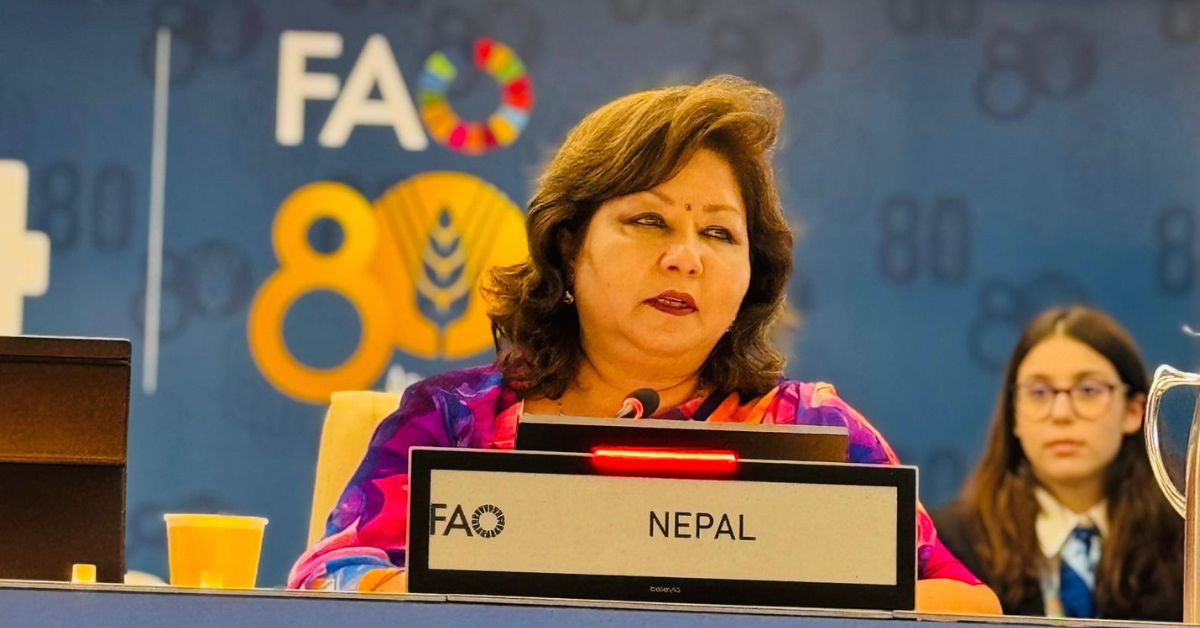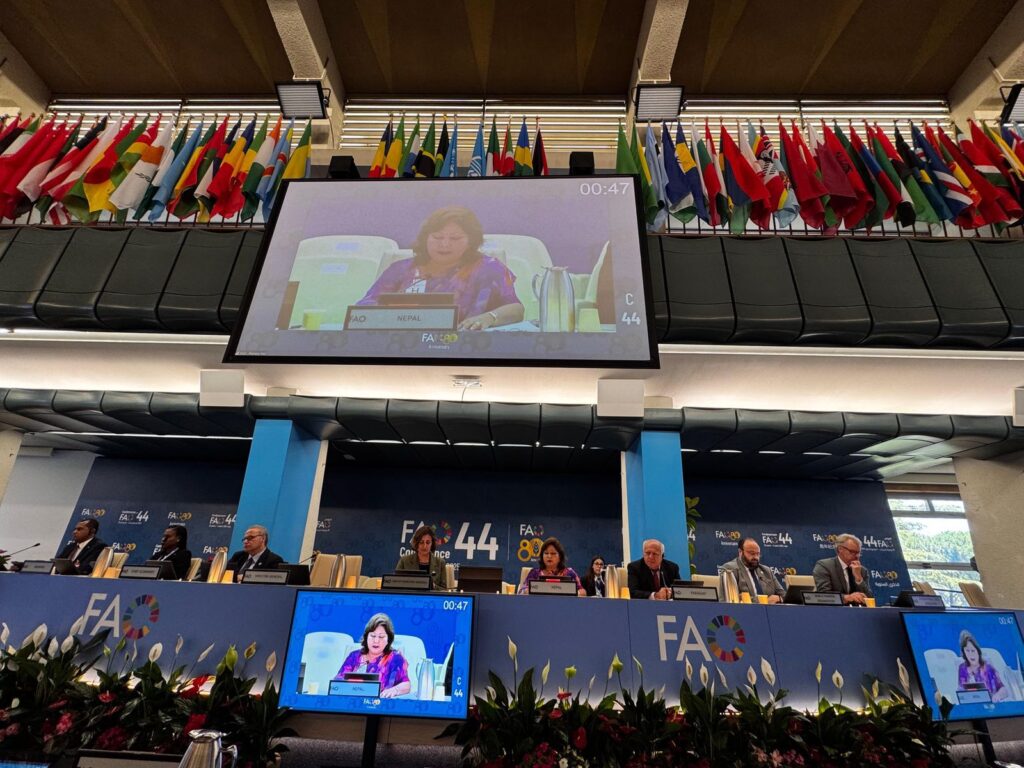

 23.77°C काठमाडौं
23.77°C काठमाडौं

Kathmandu: Foreign Minister Dr. Arzu Rana Deuba has emphasized the need for strong cooperation among climate-vulnerable countries to mitigate climate-related risks. Addressing a high-level session on Least Developed Countries (LDCs), Landlocked Developing Countries (LLDCs), and Small Island Developing States (SIDS) during the ongoing 44th Session of the United Nations Food and Agriculture Organization (FAO) Conference in Rome, Italy, she stated that there is no time to delay in building effective collaboration on climate action.
“LDCs, LLDCs, and SIDS are at great risk from climate change. It is severely affecting agricultural production and livelihoods in these countries,” she said. “Through initiatives like the recent Sagarmatha Dialogue, Nepal has been working to promote global cooperation. Moving forward, we must join forces on common agendas.”
She highlighted the need for climate adaptation financing, early warning systems, and development of rural infrastructure for Himalayan countries. Stressing the urgency of affordable and inclusive approaches, she called for international investments and capacity-building efforts to tackle climate-induced risks.
“Technology, collaboration, and solidarity are the keys to bridging the gap between potential and progress,” said Dr. Rana. “Nepal has consistently advocated for the promotion of South–South and North–South cooperation, technology transfer, market access, and access to financial resources.”
She noted that countries like Nepal are currently facing multiple overlapping crises—food insecurity, malnutrition, and climate change—which threaten to undo hard-earned progress. Nepal also faces multidimensional challenges, including climate-induced disasters, weak infrastructure, biodiversity loss, and limited access to technology and finance, she added.

Referring to FAO’s “Four Betters” vision—Better Production, Better Nutrition, Better Environment, and Better Life—Dr. Rana emphasized their relevance to transforming agricultural systems. Under “Better Production,” Nepal is promoting climate-resilient farming, high-value crops in hilly regions, and agricultural modernization. In the area of “Better Nutrition,” the country is supporting the promotion of nutrient-rich foods targeted at specific communities.
Similarly, under “Better Environment,” Nepal is prioritizing regenerative agriculture, soil and water conservation, and biodiversity protection. Regarding “Better Life,” the country is working to improve livelihoods by expanding entrepreneurship, social protection, rural infrastructure, and service access for women, youth, smallholders, and marginalized communities.
Dr. Rana concluded by noting that over 60 percent of Nepal’s workforce is engaged in agriculture, which contributes 23 percent to the national GDP, and that agriculture in Nepal is not only a source of employment but also of nutrition and livelihood.